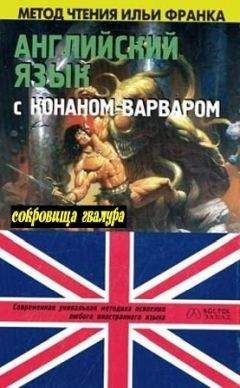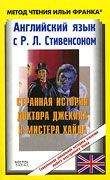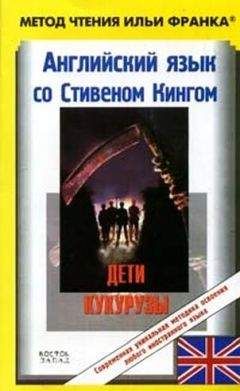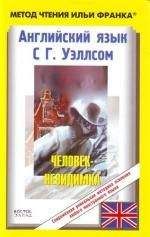awesome [ˈɔ:səm], tongue [tʌŋ], youth [ju:Ɵ], frighten [fraɪtn]
This was an awesome thing, and it caused tongues to wag excitedly in palace and beehive hut. Not for a century had the priests visited the silent city. The oracle, men said, was the Princess Yelaya, the last ruler of Alkmeenon, who had died in the full bloom of her youth and beauty, and whose body had miraculously remained unblemished throughout the ages. Of old, priests had made their way into the haunted city, and she had taught them wisdom. The last priest to seek the oracle had been a wicked man, who had sought to steal for himself the curiously cut jewels that men called the Teeth of Gwahlur. But some doom had come upon him in the deserted palace, from which his acolytes, fleeing, had told tales of horror that had for a hundred years frightened the priests from the city and the oracle.
But Gorulga, the present high priest (но Горулга, нынешний верховный жрец), as one confident in his knowledge of his own integrity (как человек, уверенный в своем сознании собственной чистоты; one — один; в значении «человек»; integrity — прямота, честность, чистота), announced that he would go with a handful of followers to revive the ancient custom (объявил, что пойдет с горсткой последователей, чтобы возродить древнюю традицию; to revive — оживать; возрождать). And in the excitement tongues buzzed indiscreetly (и в возбуждении несдержанно судачили языки; to buzz — гудеть, жужжать; сплетничать, шептаться; indiscreetly — неблагоразумно; неосторожно; нескромно, несдержанно), and Conan caught the clue for which he had sought for weeks (и Конан нашел путеводную нить, которую он искал уже недели; to catch — ловить, поймать; обнаружить; clue — клубок; путеводная нить) — the overheard whisper of a lesser priest that sent the Cimmerian stealing out of Keshia the night before the dawn when the priests were to start (подслушанный шепот младшего жреца, который направил = заставил киммерийца выскользнуть из Кеши в ночь перед рассветом, когда должны были отправляться жрецы; to send — направлять; приводить в какое-л. состояние; to steal out — выскользнуть).
knowledge [ˈnɔlɪʤ], ancient [ˈeɪnʃənt], dawn [dɔ:n]
But Gorulga, the present high priest, as one confident in his knowledge of his own integrity, announced that he would go with a handful of followers to revive the ancient custom. And in the excitement tongues buzzed indiscreetly, and Conan caught the clue for which he had sought for weeks — the overheard whisper of a lesser priest that sent the Cimmerian stealing out of Keshia the night before the dawn when the priests were to start.
Riding as hard as he dared for a night and a day and a night (скача так неистово, как он осмеливался = после бешеной скачки в течение ночи и дня, и /еще/ ночи; hard — энергично, упорно; неистово, яростно;to dare — отваживаться, осмеливаться, сметь), he came in the early dawn to the cliffs of Alkmeenon (рано /утром/ на рассвете он добрался до утесов Алкминона), which stood in the southwestern corner of the kingdom (которые находились в юго-западной части королевства; to stand — стоять; быть расположенным, находиться; corner — угол; часть, сторона, район), amidst uninhabited jungle which was taboo to the common men (среди необитаемых джунглей, которые были священны и под запретом для обычных людей; taboo — запретный, запрещенный; священный). None but the priests dared approach the haunted vale within a distance of many miles (никто, кроме жрецов, не смел приближаться к зачарованной долине в пределах расстояния во много миль = на расстояние многих миль; but — лишь; кроме;to dare — отваживаться, осмеливаться, сметь). And not even a priest had entered Alkmeenon for a hundred years (и даже ни один жрец не входил в Алкминон в течение сотни лет).
No man had ever climbed these cliffs, legends said (ни один человек никогда не взбирался на эти холмы, гласили легенды), and none but the priests knew the secret entrance into the valley (и никто, кроме жрецов, не знал тайного входа в долину; to know — знать). Conan did not waste time looking for it (Конан не стал тратить время на его поиски; to waste — терять даром, тратить впустую; to look for — искать). Steeps that balked these black people, horsemen and dwellers of plain and level forest (кручи, которые сдерживали этих черных людей, всадников и жителей равнин и горизонтального леса; to balk — обходить; задерживать, препятствовать; level — плоский, ровный; горизонтальный), were not impossible for a man born in the rugged hills of Cimmeria (не были невозможными = непреодолимыми для человека, рожденного среди труднопроходимых холмов Киммерии; to bear — носить; рожать; rugged — пересеченный, труднопроходимый /о местности/; суровый).
early [ˈə:lɪ], none [nʌn], balk [bɔ:k]
Riding as hard as he dared for a night and a day and a night, he came in the early dawn to the cliffs of Alkmeenon, which stood in the southwestern corner of the kingdom, amidst uninhabited jungle which was taboo to the common men. None but the priests dared approach the haunted vale within a distance of many miles. And not even a priest had entered Alkmeenon for a hundred years.
No man had ever climbed these cliffs, legends said, and none but the priests knew the secret entrance into the valley. Conan did not waste time looking for it. Steeps that balked these black people, horsemen and dwellers of plain and level forest, were not impossible for a man born in the rugged hills of Cimmeria.
Now on the summit of the cliffs he looked down into the circular valley and wondered (теперь на вершине утесов он смотрел вниз в округлую долину и задавался вопросом; to wonder — интересоваться; желать знать) what plague, war, or superstition had driven the members of that ancient white race forth from their stronghold to mingle with and be absorbed by the black tribes that hemmed them in (какая чума, война или суеверие погнали представителей той древней белой расы наружу из их твердыни, чтобы смешаться с черными племенами, которые окружали их, и быть поглощенными ими; to drive — ездить; гнать; forth — вперед, дальше; вовне, наружу; to mingle with — смешаться с;to hem in — окружать; hem — рубец /на платке и т. п./; подогнутый и подшитый край одежды; ободок, кайма; край, кромка).
This valley had been their citadel (эта долина была их цитаделью). There the palace stood (там стоял дворец; to stand — стоять; быть расположенным, находиться), and there only the royal family and their court dwelt (и там жили только королевская семья и их двор; to dwell — жить, проживать). The real city stood outside the cliffs (настоящий = сам город стоял за утесами). Those waving masses of green jungle vegetation hid its ruins (эти волнующиеся массы зеленой растительности джунглей скрывали его руины; to hide — прятать, скрывать). But the domes that glistened in the leaves below him were the unbroken pinnacles of the royal palace of Alkmeenon (но купола, которые сверкали в = среди листьев под ним, были целыми бельведерами королевского дворца Алкминона; pinnacle — остроконечная башенка, бельведер, шпиц; unbroken — неразбитый, целый) which had defied the corroding ages (которые противостояли разрушающим векам; to corrode — разъедать).
plague [pleɪɡ], citadel [ˈsɪtədel], glisten [ɡlɪsn]
Now on the summit of the cliffs he looked down into the circular valley and wondered what plague, war, or superstition had driven the members of that ancient white race forth from their stronghold to mingle with and be absorbed by the black tribes that hemmed them in.
This valley had been their citadel. There the palace stood, and there only the royal family and their court dwelt. The real city stood outside the cliffs. Those waving masses of green jungle vegetation hid its ruins. But the domes that glistened in the leaves below him were the unbroken pinnacles of the royal palace of Alkmeenon which had defied the corroding ages.
Swinging a leg over the rim he went down swiftly (перемахнув ногой через кромку, он стал проворно спускаться: «пошел вниз»; to swing — качать, раскачивать; размахивать; to go down — спускаться). The inner side of the cliffs was more broken, not quite so sheer (внутренняя сторона утесов была более неровной, не совсем такой /уж/ отвесной; broken — разбитый, сломанный; неровный). In less than half the time it had taken him to ascent the outer side (менее, чем за половину того времени, которое у него ушло на подъем по внешней стороне; to take — брать; забирать, отнимать), he dropped to the swarded valley floor (он спустился до дна покрытой травой долины; to drop — капать; опускаться;to sward — покрывать травой, дерном; floor — пол; дно; уровень).
With one hand on his sword (с одной рукой на мече = положив одну руку на меч), he looked alertly about him (он настороженно огляделся: «посмотрел вокруг себя»). There was no reason to suppose men lied (не было основания считать, что люди лгали; reason — причина, повод, основание) when they said that Alkmeenon was empty and deserted (когда /они/ говорили, что Алкминон пуст и покинут), haunted only by the ghosts of the dead past (/и/ населен лишь привидениями мертвого прошлого; to haunt — навещать; жить, обитать; являться /о привидении/)). But it was Conan's nature to be suspicious and wary (но в натуре Конана было быть = оставаться подозрительным и осторожным; wary — осторожный; подозрительный; настороженный). The silence was primordial (тишина была первозданной; primordial — самый первый, изначальный; первобытный); not even a leaf quivered on a branch (не подрагивал даже ни один листик на ветке; to quiver — дрожать мелкой дрожью; подрагивать). When he bent to peer under the trees (когда он наклонился, чтобы заглянуть под деревья; to bend — сгибаться; наклоняться), he saw nothing but the marching rows of trunks (он не увидел ничего, кроме росших рядами стволов; to see — видеть; to march — маршировать; расти рядами), receding and receding into the blue gloom of the deep woods (удаляющихся и убывающих до синего сумрака глубокого/темного леса; to recede — отступать; удаляться; убывать; deep — глубокий; темный).
sward [swɔ:d], ghost [ɡəust], nature [ˈneɪʧə]
Swinging a leg over the rim he went down swiftly. The inner side of the cliffs was more broken, not quite so sheer. In less than half the time it had taken him to ascent the outer side, he dropped to the swarded valley floor.
With one hand on his sword, he looked alertly about him. There was no reason to suppose men lied when they said that Alkmeenon was empty and deserted, haunted only by the ghosts of the dead past. But it was Conan's nature to be suspicious and wary. The silence was primordial; not even a leaf quivered on a branch. When he bent to peer under the trees, he saw nothing but the marching rows of trunks, receding and receding into the blue gloom of the deep woods.
Nevertheless he went warily (тем не менее он шел осторожно; nevertheless — тем не менее, однако), sword in hand (с мечом в руке), his restless eyes combing the shadows from side to side (/при этом/ его беспокойные глаза прочесывали тени из стороны в сторону = по сторонам), his springy tread making no sound on the sward (/а/ его упругий шаги не производили /никакого/ шума на траве; tread — поступь, шаги). All about him he saw signs of an ancient civilization (повсюду вокруг себя он видел следы древней цивилизации; all — всецело, полностью, целиком; sign — знак; след); marble fountains, voiceless and crumbling (мраморные фонтаны, молчащие и в трещинах; voiceless — не имеющий голоса, потерявший голос; безгласный, немой; to crumble — раскрошить, растолочь; сыпаться, осыпаться), stood in circles of slender trees (стояли в кругах стройных деревьев = окруженные стройными деревьями) whose patterns were too symmetrical to have been a chance of nature (расположение которых было слишком симметрично, чтобы быть случайностью = капризом природы; pattern — модель; расположение;chance — случайность; удачное стечение обстоятельств). Forest-growth and underbrush had invaded the evenly planned groves (лесная поросль и подлесок захватили ровно спланированные рощи), but their outlines were still visible (но их контуры все еще просматривались; visible — видимый, видный). Broad pavements ran away under the trees, broken, and with grass growing through the wide cracks (убегали под деревья широкие мостовые, разбитые и с травой, проросшей через широкие трещины; to run away — убегать; to grow — расти). He glimpsed walls with ornamental copings, lattices of carven stone (он мельком увидел стены с декоративными карнизами, решетками из резного камня; to glimpse — мерцать; бегло взглянуть, увидеть мельком) that might once have served as the walls of pleasure pavilions (которые, вероятно, некогда служили стенами развлекательных павильонов; once — однажды; когда-то, некогда; to serve as — служить /чем-л./; pleasure — удовольствие; развлечение).





